The Shinnyo-en Foundation is one of our organization’s premier partners. We share foundational beliefs in the transformative power of volunteering and service.
The Foundation was established in 1994 by Shinnyo-en, a lay Buddhist order whose members strive to live with utmost sincerity and respect for others.
 Her Holiness Keishu Shinso Ito, the spiritual head of the Shinnyo-en order, was recently interviewed in Tricycle magazine about why service is so important to Shinnyo-en. We thought you’d enjoy this excerpt from the magazine.
Her Holiness Keishu Shinso Ito, the spiritual head of the Shinnyo-en order, was recently interviewed in Tricycle magazine about why service is so important to Shinnyo-en. We thought you’d enjoy this excerpt from the magazine.
Why is volunteerism and other social work so central to Shinnyo Buddhism’s practice?
Master Shinjo understood that the training within the traditional Buddhist framework would lead to one’s own enlightenment as a monk, but he believed religion had to be able to help more people, including those who were not especially religious, in ways that suit their different circumstances.
 He incorporated new practices such as volunteerism so our sangha [community] could offer assistance to the widest range of people.
He incorporated new practices such as volunteerism so our sangha [community] could offer assistance to the widest range of people.
People who are interested in traditional Buddhist training are always welcome, but volunteer activities provide an additional avenue for Shinnyo-en to contribute to the wider secular community.
 Since we are a lay-oriented form of Buddhism, we believe it’s very important to engage with the community around us and to express our ideals there selflessly and unconditionally. I think that is pretty common in other religious traditions, too.
Since we are a lay-oriented form of Buddhism, we believe it’s very important to engage with the community around us and to express our ideals there selflessly and unconditionally. I think that is pretty common in other religious traditions, too.
For us in Shinnyo-en, though, it’s a way to extend the Buddha’s loving kindness and compassion, something we believe is innate in all of us. And that benefits both the receiver and the giver. For the receiver, the benefit is obvious.
For the giver, it cultivates a stronger sense of compassion for the suffering of every living being. But it has to take concrete form. We have to actually do something physically.
At the organizational level, we can do things by donating the money we raise to various charities and working in harmony with other groups.
But when we’re engaged at the individual level, it’s an opportunity to experience the joys of selfless service and attain the accompanying insights. For example, we realize our heart’s natural capacity for compassion, which is very liberating in and of itself.
There is the story of Chudapanthaka from various Buddhist sources.
 Basically, it’s the story of one of the Buddha’s monks who cleaned or swept his way to enlightenment.
Basically, it’s the story of one of the Buddha’s monks who cleaned or swept his way to enlightenment.
Chudapanthaka became an arhat [enlightened one] not because of his intellect— he was considered dumb or “slow” and couldn’t memorize any of the Buddha’s teachings—but because of his focused effort, or “one-pointed mind,” to clean; through that, he was able to see the true nature of existence.
True, selfless service, or true volunteering in the Buddhist sense, must contain this element of one-pointedness for it to lead to an authentic experience of the Buddha’s enlightenment.
In Shinnyo Buddhism we sometimes describe it as “unconditional” service to others, something you engage in without attachment and without expectation of reward or recognition. The spiritual growth you experience is validated and confirmed by the sangha, and paradoxically, it lifts your idealistic aspirations for enlightenment to a new level by placing them within the context of everyday reality.
 Another way to look at it is to say that selfless service brings balance to your practice. Since it engages the body, it balances the tendency we have to think and theorize rather than act.
Another way to look at it is to say that selfless service brings balance to your practice. Since it engages the body, it balances the tendency we have to think and theorize rather than act.
By channeling your energy into acts of service, you transform the ideal into the real. So cleaning the inside of a temple, or picking up trash at a public park, not only cleans the space used by others (this is where the selfless part comes in); it figuratively polishes your buddhanature.
It’s palpable in the joy and satisfaction you feel.
This is related to the Buddhist concept of building merit. One of our daily chants goes:
May the merit I have accrued be transferred to others, and may we, all together, follow the Buddha’s path to enlightenment.
This daily chant is an affirmation of our buddha nature, and any kind of sincere, correct practice builds merit, which counteracts and diminishes, or purifies, negative karma.
Skillful and meritorious practices work on the deep, unconscious level of the mind, reorienting the psyche toward the boundless lovingkindness, compassion, joy, and equanimity that characterizes your buddhanature. And that’s what liberates us and makes us happy in everyday life, regardless of the external circumstances we may find ourselves in.
These are especially difficult and confusing times. What opportunities do you see in this?
The challenges can be taken as opportunities to polish one’s mind. I don’t want people’s minds to lean towar d negativity.
d negativity.
Rather, I hope that they will use this difficult time as an opportunity to acquire the strength to sustain a positive attitude at all times.
Young people are vulnerable to negativity, which could shape their future irrevocably.
They often don’t know where to look for meaning and can easily take a wrong turn.
I want to encourage young people, communicate and interact with them, and help them keep their hearts and minds pure and open—I believe there are ways for an individual to do that, even in times of difficulty.
I want to help them see the value of working on themselves and developing spiritually.
For example, if we take a crisis, even one that may seem far off, and use it to meditate and reflect and gain some insight based on that, and then apply that insight in daily life, we can make some truly transformative changes in our lives. And positive transformation is usually incremental. Small efforts, if concrete, will pile up and bring about big personal, and even social, change.
That’s part of seeing things with the eyes of the Buddha, beyond distinctions and dualities, which helps us to see the real nature of things, the true nature of existence.
This is very liberating, as it allows us to let go of the idea that things are permanent, that things will always remain a certain way, or that there are differences between us, all of which prevent us from seeing the big picture—that we are ultimately free, interconnected, and of the same essence.
 In America today, people of many different faiths and beliefs live side by side. In addition, the vast majority of organizations people give their time and service to are faith-based. The opportunity lies before us to work together to build a society rooted in the values we treasure. Such a society can only be built on a sure foundation of mutual respect, openness and trust. This means finding ways to live our lives of faith with integrity and allowing others to do so, as well. This tip sheet is intended to underscore concepts that are fundamental to the process of stepping out of our proverbial comfort zones and interacting with others from different religious and cultural backgrounds in volunteering and service environments and beyond.
In America today, people of many different faiths and beliefs live side by side. In addition, the vast majority of organizations people give their time and service to are faith-based. The opportunity lies before us to work together to build a society rooted in the values we treasure. Such a society can only be built on a sure foundation of mutual respect, openness and trust. This means finding ways to live our lives of faith with integrity and allowing others to do so, as well. This tip sheet is intended to underscore concepts that are fundamental to the process of stepping out of our proverbial comfort zones and interacting with others from different religious and cultural backgrounds in volunteering and service environments and beyond.
 During his lifetime Dr. King worked tirelessly toward a dream of equality. He believed in a nation of freedom and justice for all, and encouraged all citizens to live up to the purpose and potential of America. The Martin Luther King, Jr. Day of Service is a way to transform Dr. King’s life and teachings into community service that helps solve problems. MLK Day programs meet tangible needs, such as revitalizing schools and feeding the homeless; but also build a sense of community and mutual responsibility by spurring conversation. On this day, Americans of every age and background celebrate Dr. King through volunteering and unite to strengthen communities, empower individuals, and bridge barriers.
During his lifetime Dr. King worked tirelessly toward a dream of equality. He believed in a nation of freedom and justice for all, and encouraged all citizens to live up to the purpose and potential of America. The Martin Luther King, Jr. Day of Service is a way to transform Dr. King’s life and teachings into community service that helps solve problems. MLK Day programs meet tangible needs, such as revitalizing schools and feeding the homeless; but also build a sense of community and mutual responsibility by spurring conversation. On this day, Americans of every age and background celebrate Dr. King through volunteering and unite to strengthen communities, empower individuals, and bridge barriers.
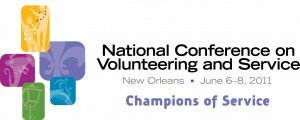 This year’s
This year’s 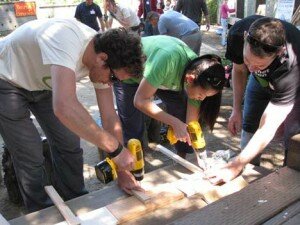 Looking at the impact of volunteers highlights the individual, institutional, and community change that volunteers can bring about through their service. Sessions in the impact track focus on specific solutions that volunteers can bring to
Looking at the impact of volunteers highlights the individual, institutional, and community change that volunteers can bring about through their service. Sessions in the impact track focus on specific solutions that volunteers can bring to 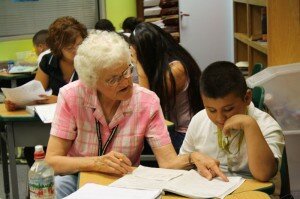 Boomers and
Boomers and 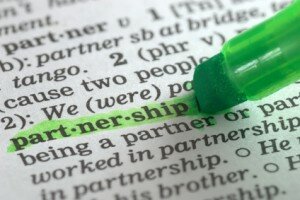 When you’re looking to build a partnership with another organization, there are some things that you ought to think about before diving in head first.
When you’re looking to build a partnership with another organization, there are some things that you ought to think about before diving in head first.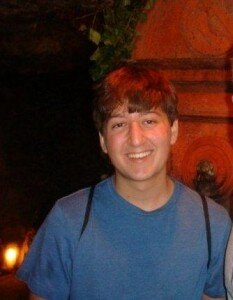 Zachary Hecht is a senior at Commack High School where he is a High Honor Role student and an IB Diploma candidate. Zach is on the regional board of BBYO’s Nassau-Suffolk Region. His interests include international relations and economics.
Zachary Hecht is a senior at Commack High School where he is a High Honor Role student and an IB Diploma candidate. Zach is on the regional board of BBYO’s Nassau-Suffolk Region. His interests include international relations and economics.
 Rabbi Will Berkovitz is Vice President of Partnerships and Rabbi in Residence for Repair the World. An ordained rabbi from the Ziegler School of Rabbinic Studies in Los Angeles, he is the former rabbi and executive director of Hillel at the University of Washington and Jconnect Seattle. Rabbi Will currently lives in Seattle with his wife Lelach, and their sons Nativ and Idan.
Rabbi Will Berkovitz is Vice President of Partnerships and Rabbi in Residence for Repair the World. An ordained rabbi from the Ziegler School of Rabbinic Studies in Los Angeles, he is the former rabbi and executive director of Hillel at the University of Washington and Jconnect Seattle. Rabbi Will currently lives in Seattle with his wife Lelach, and their sons Nativ and Idan.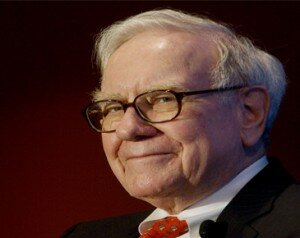
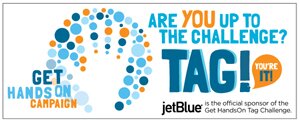
 Her Holiness Keishu Shinso Ito, the spiritual head of the Shinnyo-en order,
Her Holiness Keishu Shinso Ito, the spiritual head of the Shinnyo-en order,  He incorporated new practices such as volunteerism so our sangha [community] could offer assistance to the widest range of people.
He incorporated new practices such as volunteerism so our sangha [community] could offer assistance to the widest range of people. Since we are a lay-oriented form of Buddhism, we believe it’s very important to engage with the community around us and to express our ideals there selflessly and unconditionally. I think that is pretty common in other religious traditions, too.
Since we are a lay-oriented form of Buddhism, we believe it’s very important to engage with the community around us and to express our ideals there selflessly and unconditionally. I think that is pretty common in other religious traditions, too. Basically, it’s the story of one of the Buddha’s monks who cleaned or swept his way to enlightenment.
Basically, it’s the story of one of the Buddha’s monks who cleaned or swept his way to enlightenment. Another way to look at it is to say that selfless service brings balance to your practice. Since it engages the body, it balances the tendency we have to think and theorize rather than act.
Another way to look at it is to say that selfless service brings balance to your practice. Since it engages the body, it balances the tendency we have to think and theorize rather than act. d negativity.
d negativity.
 by Jay S. Winuk, Co-founder, Vice President, MyGoodDeed, 9/11 National Day of Service and Remembrance, President, Winuk Communications, Inc.
by Jay S. Winuk, Co-founder, Vice President, MyGoodDeed, 9/11 National Day of Service and Remembrance, President, Winuk Communications, Inc.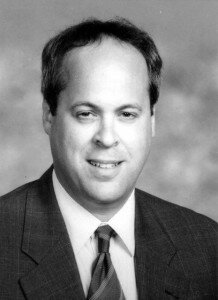 My life changed forever on that sunny September 11 morning in 2001. My brother Glenn Winuk, a partner at the large law firm Holland & Knight LLP, was murdered by the terrorists who attacked our nation by flying planes into the Twin Towers of the World Trade Center in New York. Situated just a block and a half from the site, Glenn helped evacuate his law offices, then raced toward the South Tower to participate in the rescue effort. He died when that building collapsed. Glenn’s partial remains were recovered about six months later, a borrowed medic bag by his side.
My life changed forever on that sunny September 11 morning in 2001. My brother Glenn Winuk, a partner at the large law firm Holland & Knight LLP, was murdered by the terrorists who attacked our nation by flying planes into the Twin Towers of the World Trade Center in New York. Situated just a block and a half from the site, Glenn helped evacuate his law offices, then raced toward the South Tower to participate in the rescue effort. He died when that building collapsed. Glenn’s partial remains were recovered about six months later, a borrowed medic bag by his side.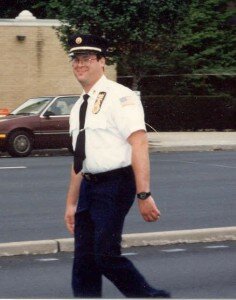 or almost 20 years Glenn was a volunteer firefighter and EMT in our home town of Jericho, NY. He had also served as a fire commissioner and as an officer of Engine Company 2, and was highly decorated. Specially certified in building collapse rescue training, no one was more prepared to race into those towering infernos than my kid brother, dead at 40.
or almost 20 years Glenn was a volunteer firefighter and EMT in our home town of Jericho, NY. He had also served as a fire commissioner and as an officer of Engine Company 2, and was highly decorated. Specially certified in building collapse rescue training, no one was more prepared to race into those towering infernos than my kid brother, dead at 40.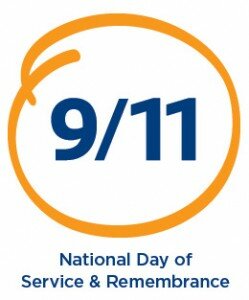 When my friend and colleague David Paine called from California a few months after the attacks to tell me about his idea, it was as if it was scripted. “Let’s work together to make 9/11 a national day of service,” David suggested, so that people will never forget how good people of the world responded when our nation was wounded. And off we were.
When my friend and colleague David Paine called from California a few months after the attacks to tell me about his idea, it was as if it was scripted. “Let’s work together to make 9/11 a national day of service,” David suggested, so that people will never forget how good people of the world responded when our nation was wounded. And off we were.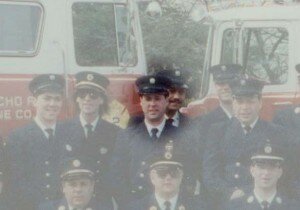 Engaging in service or good deeds on the anniversary each year in honor of those who perished or rose to help is truly an extraordinary phenomenon. Millions of people from all 50 states and countries all over the world now mark September 11 in service to others, with acts small and large. The ways that people participate are countless, creative and meaningful. All who visit our web site at
Engaging in service or good deeds on the anniversary each year in honor of those who perished or rose to help is truly an extraordinary phenomenon. Millions of people from all 50 states and countries all over the world now mark September 11 in service to others, with acts small and large. The ways that people participate are countless, creative and meaningful. All who visit our web site at 
